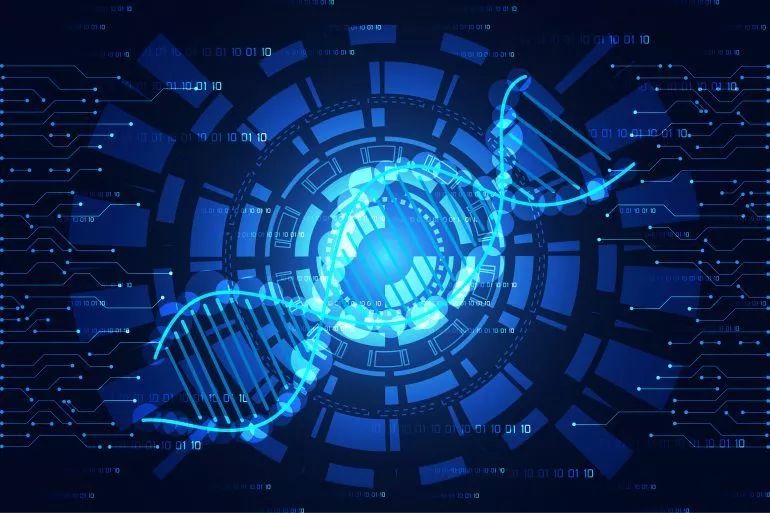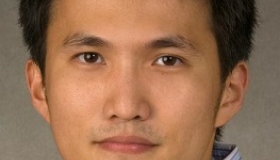活动预告 || 医学和健康科学创新研讨会
简介:
为期一天的研讨会聚集了来自深圳、香港、上海和斯坦福的学术界和工业界的研究人员,讨论医药和健康科学的创新,生物科技领域的进步,现实世界数据和证据,以及以患者为中心的医疗产品开发的进展。作为统计科学和跨学科应用中心的首次活动,本次研讨会有望为该中心的未来论坛和合作铺平道路。
与会人员:
黎子良教授,斯坦福大学
钱大宏教授,上海交通大学
黄丽虹教授,香港中文大学
殷卫海教授,上海交通大学
朱宝亭教授,香港中文大学(深圳)
小组讨论参与人员:
Hou Yong 博士,BGI基因组学
Zou Hao 博士,Tsimage医疗技术
Deng Yuetang博士,腾讯


Speakers and Abstracts
Distributed Secure Computing Driven by AI Medical Applications
08:45-09:30 Dahong Qian School of Biomedical Engineering and Director of Human-Machine Intelligence Research Center of Medical Robot Institute, SJTU
Abstract:With the booming of AI in medical applications, the demand for structured medical data has also increased explosively. In the meantime, hospitals and researchers have more awareness and concerns on the security and privacy protection of medical and health data. We proposed a distributed secure computing-based architecture to help users legally obtain access to data. The data and training model are placed in a secure virtual machine at each local node and distributed training algorithms are employed to achieve the similar results of centralized data training. Based on this architecture, several distributed deep learning training methods has been presented and analyzed, and the required edge-computing hardware structures have also been compared.
From Bench to Bedside and Community: Recent Advances in Translational Medicine and Global Health
09:30-10:15 Tze Leung Lai Ray Lyman Wilbur Professor of Statistics, Biomedical Data Science, and Computational & Mathematical Engineering, Stanford University
Abstract:Tze Leung Lai is the Ray Lyman Wilbur Professor of Statistics and by courtesy, also of Biomedical Data Science, and Computational & Mathematical Engineering at Stanford University, where he is the Director of Financial and Risk Modelling Institute (FARM), Co-director of the Center of Innovative Study Design (CISD) and core member of the Comprehensive Cancer Institute, Center for Innovation in Global Health, Center for Precision Mental Health and Wellness, and Center for Population Health Sciences in the School of Medicine, and an advisory committee member of the Bing Overseas Program (BOSP) in Hong Kong. Before moving to Stanford in 1987, he was the Higgins Professor of Statistics at Columbia University where he received his Ph.D. and an Assistant Professor appointment in 1971 and was promoted to Professor in 1977. He received the COPSS (Committee of Presidents of Statistical Societies) Award in 1983 and was elected to Academia Sinica in 1994. He is also the honorary dean of the Center for Financial Technology & Risk Analytics at Fudan University, a visiting chair professor of Southwestern University of Finance and Economics, and an advisory committee member of the Yau Center for Mathematical Sciences at Tsinghua University, the Center for Statistical Science at Peking University, the Department of Statistics and Actuarial Science at The University of Hong Kong (where he received his B.A degree, First Class Honors, in Mathematics in 1967), and Institute of Statistical Science at Academia Sinica since in Taiwan. He has published over 300 papers and 12 books, and has supervised 73 Ph.D. these at Columbia, Stanford, and Stony Brook and University of Padova in Italy (where he visited).
Big Data Research in Medicine - the Challenges and Opportunities
10:40-11:25 Grace Lai-Hung Wong Faculty of Medicine and Global Physician-Leadership Stream, CUHK
Abstract:Both clinical medicine and basic biomedical research are large generators of biomedical data. In Hong Kong, Hospital Authority, the sole public healthcare provider, have millions to billions of various types of clinical data (e.g. diagnosis, procedures, laboratory tests and results etc). In the US, her healthcare system expected to reach the zettabyte (10²¹) scale from electronic health records, scientific instruments, clinical decision support systems, or even research articles in medical journals. Big Data and its practices in health or medical science become even more prominent due to new social arenas/media and networks, sensory/digital technology, and mobile devices with smartphone apps and personal sensor health data with real time digital data accumulations. In this lecture we will discuss various challenges and opportunities in big data research in medicine.
“Pattern of Autofluorescence” Technology: A Novel Strategy for Health Monitoring, Diagnosis and Evaluation of Rehabilitation Effects
11:25-12:10 Weihai Ying School of Biomedical Engineering and Med-X research Institute, SJTU
Abstract:We have invented a novel technology for evaluating the disease state of human – ‘Pattern of Autofluorescence (AF)’ technology. The major concept of ‘Pattern of AF’ technology is the following: The green AF of the nails and certain positions of the skin can be increased through such mechanisms as oxidative stress-induced increases in keratins’ AF. Each disease has its unique pattern of the AF, i.e., unique combinations of the AF’s properties, including the intensity, asymmetry, structure and locations in the body, based on which the health state of a person may be assessed, and the disease of the person may be diagnosed. We have also invented a portable device to determine the AF of the skin and the nails of people, which may provide non-invasive and economic evaluation of health state and diagnosis of diseases within several minutes. We have applied this equipment to conduct the studies for non-invasive health evaluation, disease diagnosis and evaluation of rehabilitation effects in several leading hospitals of China. Our study has suggested that this technology may have great potential for health monitoring, evaluation of rehabilitation effects, and diagnosis of multiple major diseases including ischemic stroke.
The Search for Novel Endogenous Estrogen Derivatives: A Gold Mine of Treasures
15:30-16:15 Bao-Ting Zhu Presidential Chair Professor, Associate Dean of School of Science and Engineering, CUHKSZ
Abstract:Estrogens are key sex hormones that have many important biological functions in females, including reproduction. In this lecture, I will give an overview on the discovery of estrogen derivatives that serve as new hormones in the body. These new hormones play unique roles in many (patho) physiological processes, such as glucose and lipid metabolism and homeostasis, neuronal cell protection and survival, immune system modulation, and estrogen-induced hormonal cancers. This exciting and emerging area of research has attracted great interest in recent years.




